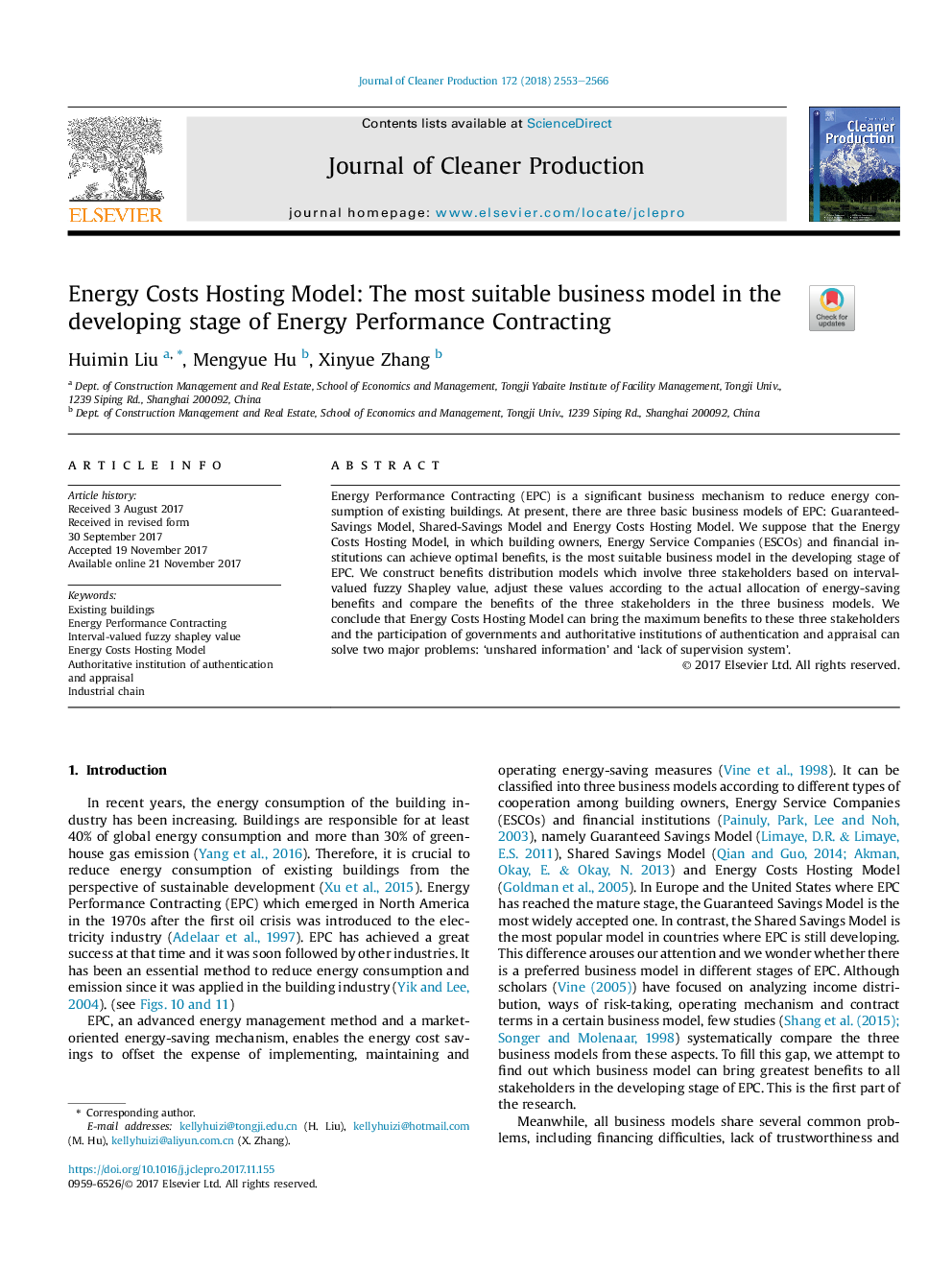ترجمه فارسی عنوان مقاله
مدل های میزبانی هزینه های انرژی: بهترین مدل کسب و کار در مرحله توسعه قرارداد انرژی عملکرد
عنوان انگلیسی
Energy Costs Hosting Model: The most suitable business model in the developing stage of Energy Performance Contracting
| کد مقاله | سال انتشار | تعداد صفحات مقاله انگلیسی |
|---|---|---|
| 109705 | 2018 | 14 صفحه PDF |
منبع

Publisher : Elsevier - Science Direct (الزویر - ساینس دایرکت)
Journal : Journal of Cleaner Production, Volume 172, 20 January 2018, Pages 2553-2566
ترجمه کلمات کلیدی
ساختمان های موجود، قرارداد انرژی، ارزش فیشی ارزش فشاری با فاصله زمانی، مدل میزبانی هزینه های انرژی، موسسه معتبر احراز هویت و ارزیابی، زنجیره صنعتی،
کلمات کلیدی انگلیسی
Existing buildings; Energy Performance Contracting; Interval-valued fuzzy shapley value; Energy Costs Hosting Model; Authoritative institution of authentication and appraisal; Industrial chain;

